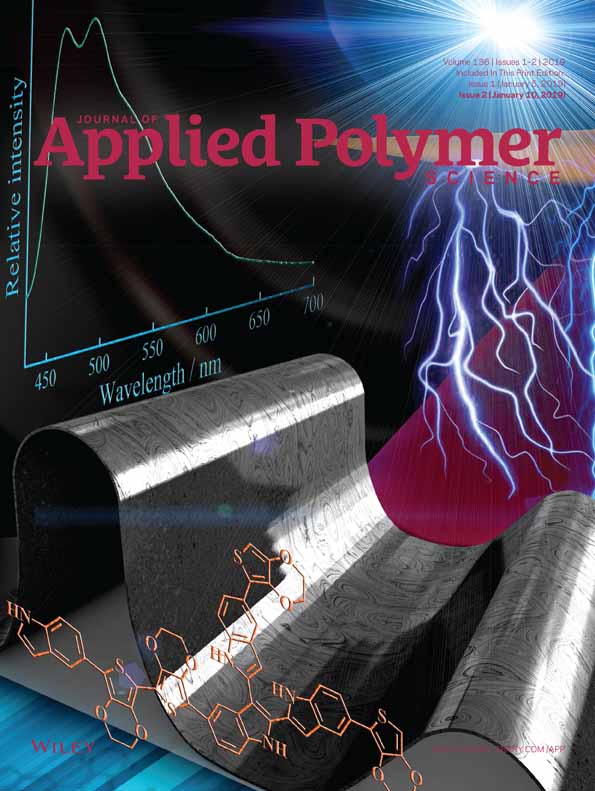Autonomous self-healing based on epoxy resin–imidazole chemistry in carbon fiber-reinforced polymer composites
ABSTRACT
Epoxy resin–imidazole chemistry is used as a new autonomous self-healing system for unidirectional fiber-reinforced polymers and tested for its efficiency in recovery of fracture properties in laminated carbon fiber-reinforced polymers. The dual microcapsule approach is utilized to store and distribute the reactive chemistries in the structure. Microcapsules were located in possible damage regions using polymeric interleaves. Microcapsules containing separately the epoxy resin (EPIDIAN 52–ethyl phenylacetate) and imidazole hardener (1-benzyl-2-methylimidazole) are prepared with poly(urea-formaldehyde) and PMMA shell wall, respectively. Mode I fracture toughness tests are used to evaluate the recovery of the material mechanical properties. At optimized conditions, 117.5% of the interlaminar fracture toughness (GIC) was recovered after heat treatment at 100 °C for 24 h. Furthermore, it is demonstrated that the self-healing efficiency is strongly dependent on the load of microcapsules with the imidazole hardener and that the microcapsules’ presence in the laminate has a detrimental effect on the material's mechanical performance. © 2018 Wiley Periodicals, Inc. J. Appl. Polym. Sci. 2019, 136, 46938.




